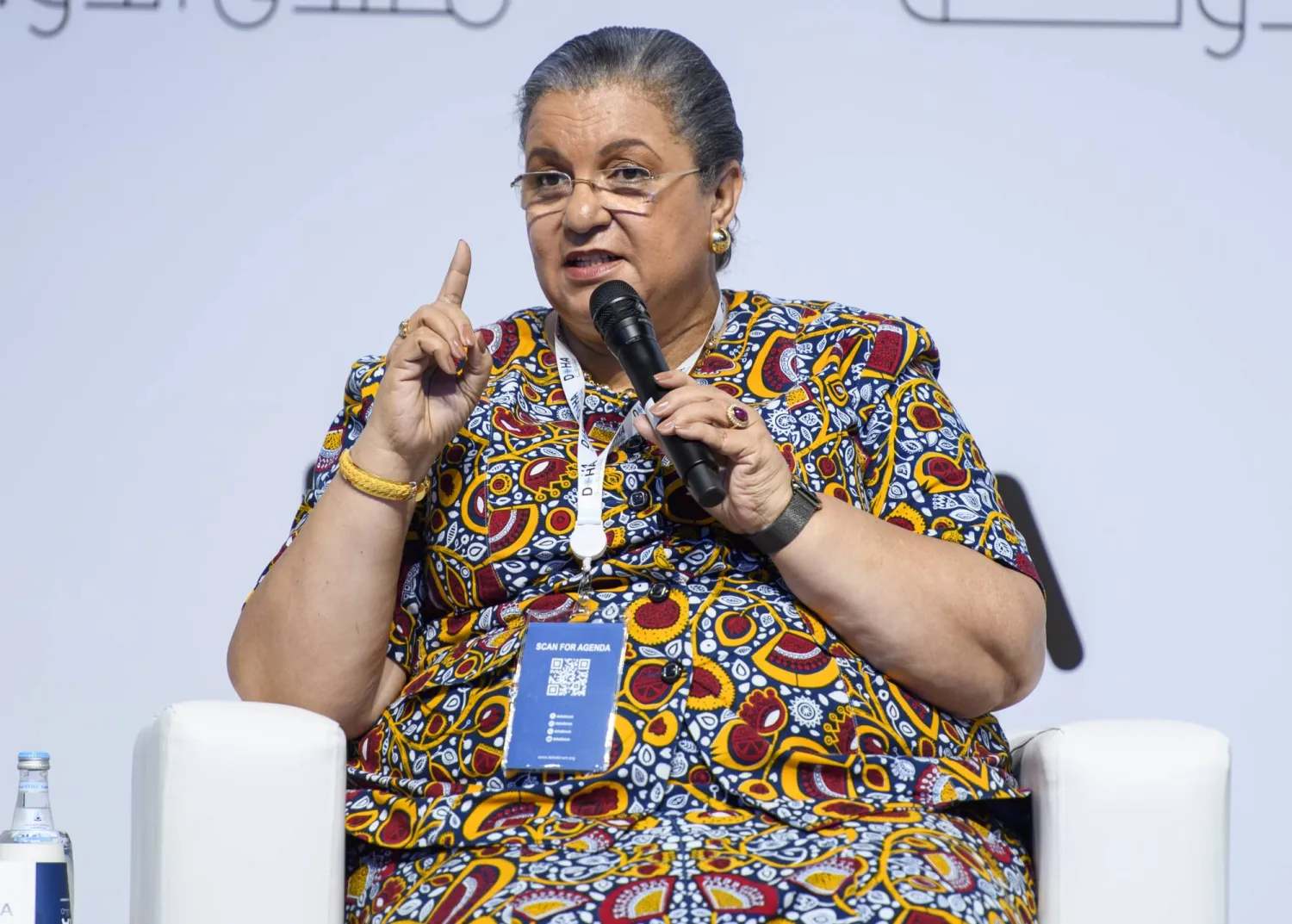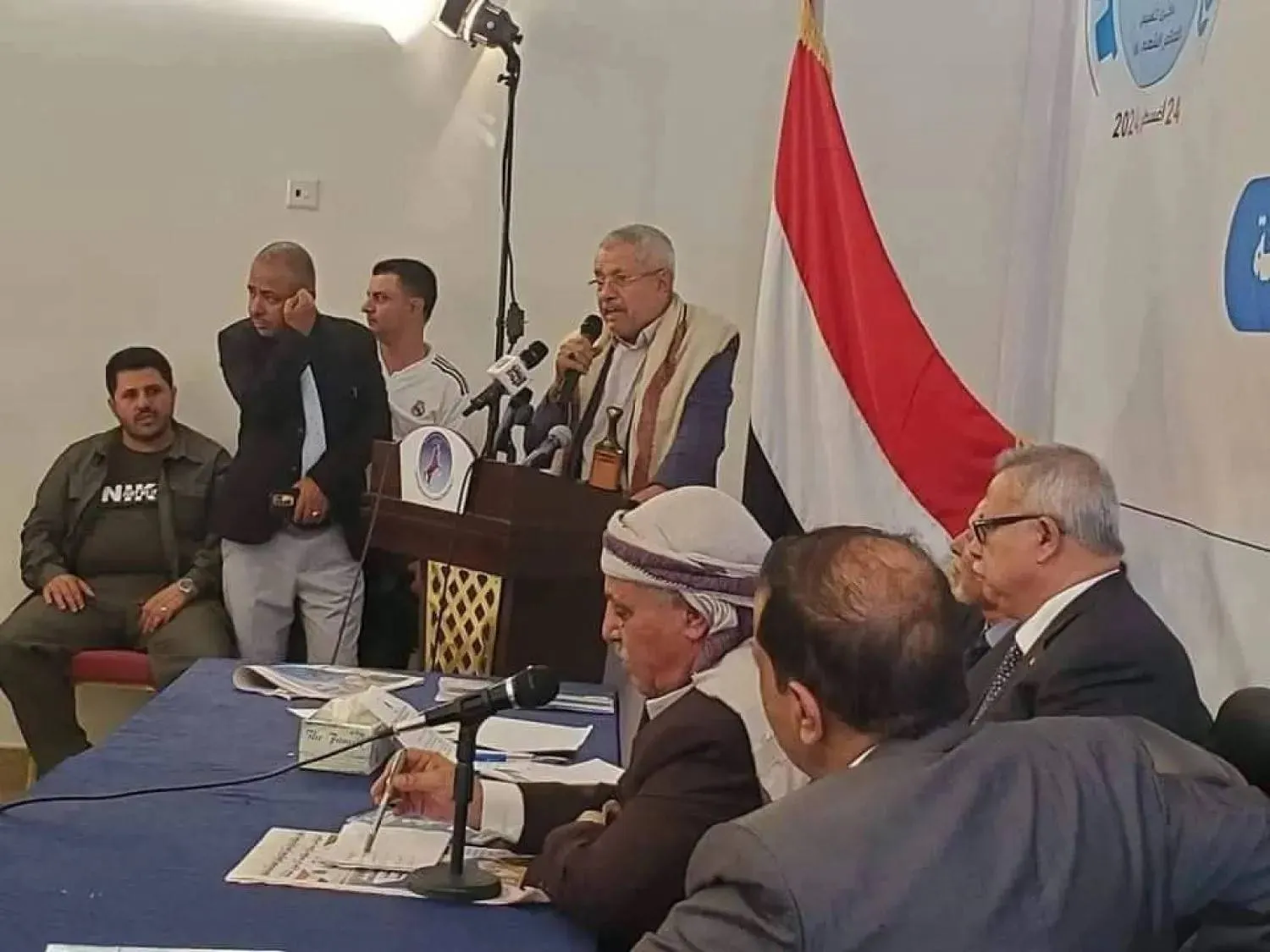A wing of Yemen’s General People’s Congress (GPC) operating in areas under Houthi control has moved to consolidate its alignment with the Iran-backed group, dismissing the party’s secretary general, Ghazi Ali al-Ahwal, and replacing Ahmed Ali Saleh, son of the late Yemeni president, with a figure closely associated with the Houthis in the post of deputy party leader.
The party’s General Committee, its political bureau, held a meeting in Sanaa on Thursday, chaired by Sadiq Amin Abu Ras, head of the party wing in Houthi-controlled areas.
The meeting ended with the selection of Abdulaziz bin Habtoor, the former head of the unrecognized Houthi government, as deputy party leader.
The move was widely seen as a direct response to public Houthi demands to remove the former president’s son, coupled with repeated threats to shut down the party and ban its activities.
The decision to sideline Ahmed Ali Saleh came after weeks of mounting pressure by the Houthis on the wing’s leadership.
Measures included tight security restrictions on Abu Ras’s movements and threats to dissolve the party and seize what remained of its political and organizational activity, citing the group’s full control over party headquarters and finances in Sanaa and other areas under its influence.
According to party sources, the Houthis did not stop at imposing the removal, but also demanded the appointment of a loyal figure as deputy leader in an effort to tighten their grip on what remains of the party’s decision-making structures and to prevent any potential communication with party leaders abroad or with rival political forces.
The most controversial decision was the final expulsion of al-Ahwal from party membership, around four months after his arrest by the Houthis on charges of communicating with party leaders outside the country, foremost among them Ahmed Ali Saleh.
At an earlier meeting, the wing had approved the appointment of Yahya al-Raai as secretary general to replace al-Ahwal, in addition to his role as deputy party leader alongside Abu Ras.
The party’s Organizational Oversight Authority submitted a report to the General Committee accusing al-Ahwal of harming party unity and national unity, violating internal regulations, the constitution and national principles.
The leadership used the report to justify the expulsion decision, which it said was taken unanimously, despite criticism that the secretary general remains detained under unlawful conditions without even minimal guarantees of defense or trial.
Houthi grip
Political sources in Sanaa said the appointment of bin Habtoor as deputy party leader was an attempt by the wing’s leadership to ease pressure and avoid a scenario in which the Houthis imposed a more hardline and openly loyal figure, such as Hussein Hazeb, whom the group had been pushing to appoint as first deputy leader or secretary general.
However, the same sources said the move did not prevent the Houthis from pressing ahead with their demand to permanently expel al-Ahwal, underscoring how limited the leadership’s room for maneuver has become and how key decisions are effectively made outside the party’s organizational framework.
In an apparent attempt to justify the moves, the General Committee said the General People’s Congress “has always been and will remain keen to resolve disputes within the framework of national unity,” speaking of visions related to decentralized governance and reducing centralization.
By contrast, senior party figure Jamal al-Humairi, who is based abroad, said the recent decisions were “an extension of a clear trajectory of Houthi pressure,” stressing that they were issued in a “kidnapped political and security reality” where intimidation and blackmail are used to subjugate a long-established party and strip it of its historic leadership.
He said organizational legitimacy “is derived from the grassroots, not from decisions imposed by force,” adding that the decisions “do not represent the party or its base.”
Internal anger
Inside Sanaa, party sources said there was widespread anger and rejection among party cadres over the decision to expel al-Ahwal, as well as criticism of the General Committee meeting for failing to address his detention or demand his release. They also cited frustration over the failure to address the siege imposed on the home of the wing’s leader and other senior figures.
Observers say the treatment of the Sanaa-based wing reflects a broader picture of political life being stifled in Houthi-controlled areas, where a single ideological vision is imposed on parties and only a narrow margin of activity is allowed for organizations that orbit the group.
Since the killing of former president Ali Abdullah Saleh at the end of 2017, the General People’s Congress has been deeply divided. Most of its historic leadership left Houthi-controlled areas without agreeing on a unified leadership abroad, while the Sanaa wing opted to adapt to the reality of Houthi dominance.
Meanwhile, Tareq Saleh formed a political bureau for the National Resistance Forces on the Red Sea coast, which has attracted party figures and members of parliament.
Analysts agree that the latest decisions mark a new stage in the dismantling of the party in Sanaa, turning it into a body stripped of independent will and operating under Houthi conditions, further entrenching the erosion of political pluralism in Yemen.









